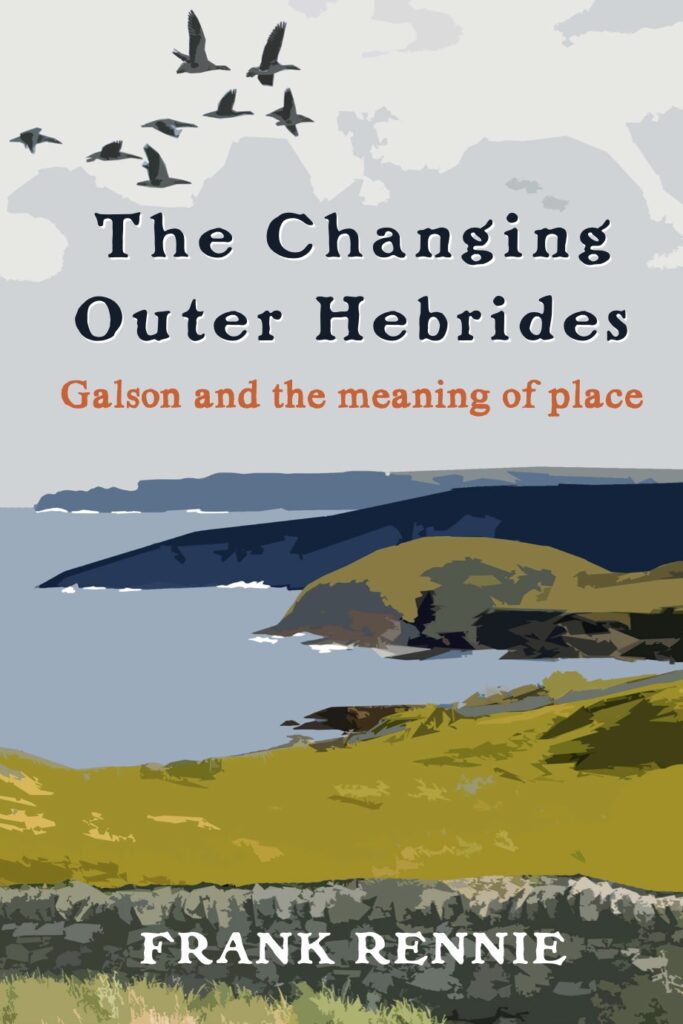2020 Shortlist
The 2020 Highland Book Prize received over 50 entries submitted by 30 different publishers and reviewed by a panel of 145 volunteer readers comprised of industry professionals and avid readers.
We are delighted to be able to reveal the books on the shortlist for the 2020 Highland Book Prize. They are:

The Nature of Summer by Jim Crumley, published by Saraband.
To The Lake: A Journey of War and Peace by Kapka Kassabova, published by Granta.
The Changing Outer Hebrides: Galson and the Meaning of Place by Frank Rennie, published by Acair Books.
Summer by Ali Smith, published by Hamish Hamilton.

The Nature of Summer by Jim Crumley, published by Saraband (nature and environment).
In the culmination of his landmark four-part study of the seasons, the nature in Jim Crumley’s summer is burgeoning freely. Seals sing, brown hares bound, dragonflies dance. His silent vigils reveal not only an enchanting account of exuberant profusion, but the unfolding climate chaos. From declining puffin populations to the demise of entire glaciers, this is a world in crisis… and of everyday miracles on land, mountains, lochs, coasts and skies. Jim Crumley’s intimate portraits branch out beyond the heart of the Highlands to memories of summers past, exploring what is at stake as our seasons are pushed beyond nature’s limits.
During a writing career spanning 33 years, Jim has produced 40 books, almost all of them devoted to the wildlife, wild places and environment of Scotland. His most recent project was a quartet of books centred around the seasons. The final volume, The Nature of Summer, was published in 2020. Other books have featured beavers, eagles, swans and the Great Wood of Caledon. His 2010 book, The Last Wolf, rewrote the history of wolves in Scotland and argued the case for their reintroduction. Jim is also a columnist in the Scots Magazine.
Visit: www.jimcrumleynature.com

To The Lake: A Journey of War and Peace by Kapka Kassabova, published by Granta (memoir, reportage, travel).
Lake Ohrid and Lake Prespa. Two vast lakes joined by underground rivers. Two lakes that have played a central role in Kapka Kassabova’s maternal family.
As she journeys to her grandmother’s place of origin, Kassabova encounters a civilizational crossroads. The Lakes are set within the mountainous borderlands of North Macedonia, Albania and Greece, and crowned by the old Roman road, the via Egnatia. Once a trading and spiritual nexus of the southern Balkans, it remains one of Eurasia’s oldest surviving religious melting pots. With their remote rock churches, changeable currents, and large population of migratory birds, the Lakes live in their own time.
By exploring the stories of dwellers past and present, Kassabova uncovers the human history shaped by the Lakes. Soon, her journey unfolds to a deeper enquiry into how geography and politics imprint themselves upon families and nations, and confronts her with questions about human suffering and the capacity for change.
Kapka Kassabova is a poet, novelist and writer of narrative non-fiction. Her acclaimed memoirs Street Without a Name (2008) and Twelve Minutes of Love (2011) were followed by Border: A Journey to the Edge of Europe (2017) which won the British Academy’s Al-Rodhan Prize for Global Cultural Understanding, the Saltire Scottish Book of the Year, the Edward Stanford-Dolman Travel Book of the Year, and the inaugural Highlands Book Prize. It was short-listed for the Baillie-Gifford Prize.
Visit : kapka-kassabova.net

The Changing Outer Hebrides: Galson and the Meaning of Place by Frank Rennie, published by Acair Books (history and nature).
This is a fascinating and intimate account of the inter-relationship between one small island village in the Hebrides and the wider world. From the formation of the bedrock 3 billion years ago, to the predictable near-future, the layers of this unique landscape are explored. The social history of the people is closely interwoven with the natural environment in a journey of deep mapping to consider the meaning of special places. Through the Iron Age and the Clearances to the contemporary events of community land ownership, a portrayal is given that challenges the perception that this is a remote place, isolated at the edge, but instead is crucial to our contemporary relationship with the land.
Frank Rennie is the Professor of Sustainable Rural Development at Lews Castle College of the University of the Highlands and Islands, where he works on human ecology, rural issues, and education. As a natural scientist, he has strong roots in the landscape and community, and has a passion for presenting good science in everyday language. He travels widely and has published more than 30 books in both Gaelic and English. Frank lives with his family in Gabhsann.
Visit: www.lews.uhi.ac.uk/frennie

Summer by Ali Smith, published by Hamish Hamilton
In the present, Sacha knows the world’s in
trouble. Her brother Robert just is trouble. Their mother and father are having trouble. Meanwhile the
world’s in meltdown – and the real meltdown hasn’t even started yet. In the past,
a lovely summer. A different brother and sister know they’re living on borrowed
time.
This is a story about people on the brink of
change. They’re family, but they think they’re strangers. So: where does family
begin? And what do people who think they’ve got nothing in common have in
common?
Summer.
Ali Smith was born in Inverness in 1962. She is the author of Spring, Winter, Autumn, Public library and other stories, How to be both, Shire, Artful, There but for the, The first person and other stories, Girl Meets Boy, The Accidental, The whole story and other stories, Hotel World, Other stories and other stories, Like and Free Love. Hotel World was shortlisted for the Booker Prize and the Orange Prize. The Accidental was shortlisted for the Man Booker Prize and the Orange Prize. How to be both won the Bailey’s Prize, the Goldsmiths Prize and the Costa Novel of the Year Award, and was shortlisted for the Man Booker Prize. Autumn was shortlisted for the Man Booker Prize 2017 and Winter was shortlisted for the Orwell Prize 2018. Ali Smith lives in Cambridge.
Visit: www.penguin.co.uk

